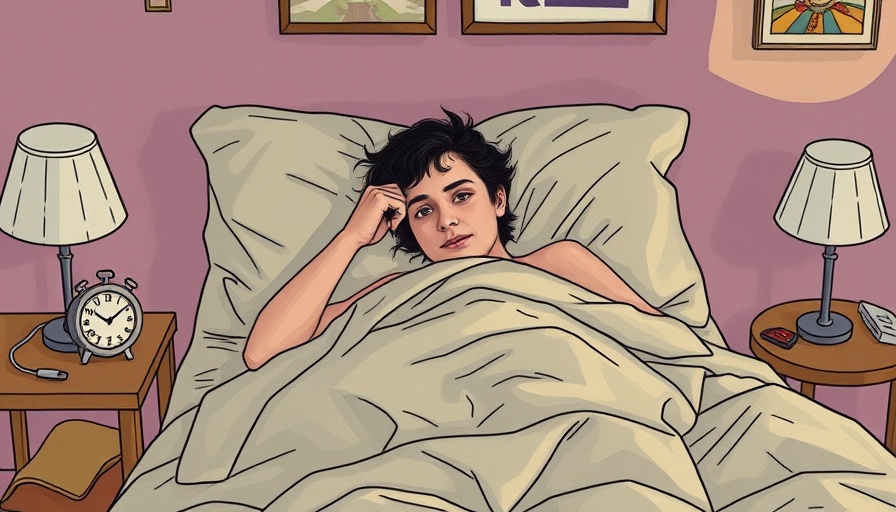
Understanding the Challenges of Insomnia
Insomnia is a widespread issue affecting millions of people, disrupting their sleep cycles and impacting daily life. As noted by the National Sleep Foundation, many individuals struggle with problems like difficulty falling asleep, staying asleep, or waking up too early. Gillian Greenfield and Michael Peel touch upon this in their letters about coping mechanisms for insomnia, suggesting that our sleeping patterns have evolved with modern life, often leading us away from our body's natural biorhythms.
Connecting with Wellness Through Audio
Gillian shares an innovative approach to dealing with sleeplessness—listening to radio shows and podcasts. This method not only distracts from anxiety but also provides a soothing backdrop that helps initiate sleep. This echoes findings from various health experts, including those from Women's Health, who emphasize creating a comforting environment and engaging in relaxing activities before bedtime, as they can significantly improve sleep quality. Engaging in activities like listening to a story or a calming podcast can be a simple yet powerful tool to ease into sleep.
Expert Tips for Better Sleep Hygiene
To enhance sleep quality, following a set of practices, often referred to as sleep hygiene, is vital. The inputs from various health resources highlight the importance of consistent sleep schedules—getting up at the same time each day and avoiding heavy meals or stimulants close to bedtime. Even simple steps, such as ensuring your bedroom is dark and quiet, can greatly affect your ability to drift off and stay asleep. Regular exercise, although best avoided immediately before bedtime, has been shown to have positive outcomes for sleep duration and quality.
Exploring Natural Sleep Aids
While many turn to over-the-counter sleep medications, experts warn that these can sometimes exacerbate insomnia. The advice is leaning towards natural sleep aids instead. Herbal remedies such as chamomile tea or valerian root, as well as lifestyle adjustments, have garnered interest as safer alternatives. For those struggling to fall back asleep, looking into relaxation techniques, like mindfulness meditation or gentle yoga stretches, can promote a sense of calm that prepares the body for sleep.
Diving Into the Science of Sleep
Understanding the science behind sleep can also provide significant insights into why many of us struggle. Chronotherapy, an emerging area of research, explores maximizing the benefits of medications by timing them according to our biological rhythms. This could potentially revolutionize how we approach treatment options for sleep disturbances, as highlighted by the Spondylitis Association of America. It raises important discussions about personalizing sleep strategies to fit individual body clocks.
Next Steps for Improving Your Sleep
If you're grappling with insomnia, consider keeping a detailed sleep journal to track patterns, lifestyle habits, and what techniques help you. You can analyze the potential triggers affecting your sleep quality. Seeking professional support for chronic issues may also be beneficial. Following the advice to establish a regular bedtime routine can harness what works best for you and fuel your journey toward consistent, restorative sleep.
As the quest for better sleep continues, integrating wellness practices and being mindful of our body's needs can lead to significant improvements in health and overall quality of life. Take charge of your nighttime habits and watch how they transform your days!
 Add Element
Add Element  Add Row
Add Row 



Write A Comment